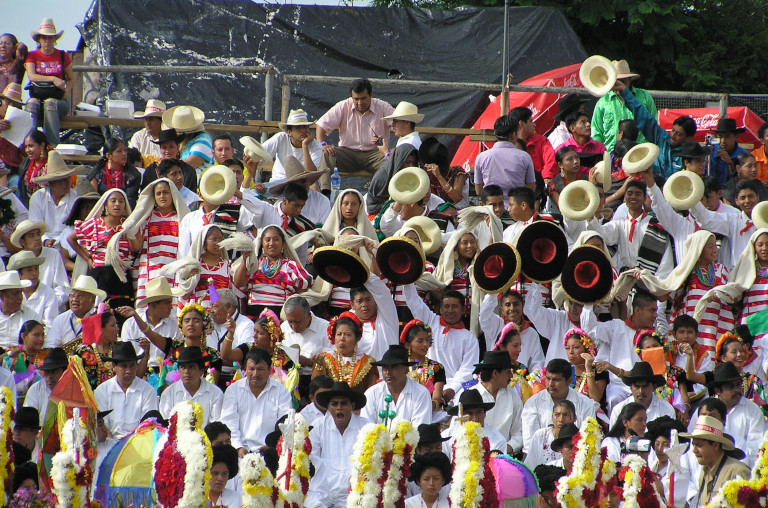This piece originally appeared in Spanish in La Jornada, August 1, 2023 | Victor M. Toledo
Translated by Jane K. Brundage
The most marginalized, discriminated against, ignored, vilified and exploited sector of humanity has been that of indigenous or native peoples.
Are they still?
I think the correct answer is that they are ceasing to be, and this has to do with what has been discovered in the last two decades by a certain liberating or libertarian science, whose contributions have transformed the false idea that was had of them, fueled by classist ideologies and forever racists.
The first advance was the recognition that indigenous peoples make up the cultural diversity of the human species, speaking some 7,000 languages, each of which constitutes a particular way of seeing the world.
In addition, ethnobiological and ethnoecological studies have revealed the existence of a certain indigenous wisdom, a complex repertoire of knowledge, technologies and productive strategies that, together with their worldviews, endow them with a notable trait:
a relationship of respect towards nature, in stark contrast with the destructive mechanisms generated by modernity.
Today that wisdom has placed native peoples on a level similar to that of contemporary science, which requires putting into practice a dialogue of knowledge.
A second revelation was the close relationship between the regions inhabited by indigenous peoples with the areas of greatest biological richness.
Two nodal contributions stand out. One is the chapter titled ¨Indigenous Peoples and Biodiversity¨ by this writer for the Encyclopedia of Biodiversity, https://rb.gy/ipzdj).
A second is by G. Oviedo and co-authors based on data from the so-called World Wildlife Fund Global 2000 Project (World Wide Fund for Nature). Oviedo and his team identified 136 terrestrial ecological regions that, due to their characteristics, were defined as priority areas for conservation. Eighty percent of regions are inhabited by indigenous peoples (https://acortar.link/hOAwY8).
Advances made in remote sensing technologies and data processing that allow the creation of highly accurate geographic information systems (GIS) capable of processing large amounts of data and their spatial or cartographic representation, allowed refining the above.
Conservation International identified 40 world regions that, with just 8.4 percent of the land surface, contain 67 percent of vascular plant species, and more than 50 percent of terrestrial vertebrate species (mammals, birds, reptiles, and amphibians).
In a seminal investigation, L. J. Gorenflo and collaborators determined in 2012 that the number of languages spoken by indigenous peoples inhabiting those regions, reached a total of 4,824, that is, almost 70 percent of the world’s indigenous peoples (https://www.pnas.org/doi/full/10.1073/pnas.1117511109).
The third advance had to do with the location, mapping and quantification of the territories inhabited or claimed by indigenous peoples.
A study by Garnett in 2018 mapped these territories in 87 countries, finding that they are equivalent to 25 percent of the planet’s surface! That is, some 38 million square kilometers [14.7 million square miles], of which 40 percent make up protected natural areas or regions with little or nothing impacted.
A final step was taken with the appearance in 2010 of the ICCA Consortium (the English initials for Indigenous and Community Conserved Areas (https://www.iccaconsortium.org/index.php/es/inicio/) that brings together organizations and indigenous federations from 80 countries, together with an international advisory council dedicated to supporting governance, management and conservation processes under a decolonizing perspective.
In a way similar to Vía Campesina, this organization promotes and connects at a planetary level the territories of life conceived as a source of identity and culture, of autonomy and self-management, in an openly political perspective.
In conclusion, the empowerment achieved by indigenous peoples in recent decades has arisen from the synergy created between the knowledge generated in the academy and the movements of resistance and rebellion and their organizations. This is now a new power of a territorial nature that will grow stronger as it manages to connect in such a way that it goes from islands to archipelagos and hence to seas.
I end this essay by sharing the words of David Choquehuanca, the chief philosopher of buen vivir, good living, Bolivia´s foreign minister from 2006 to 2017 and today the country´s vice president:
The movement to care for life and community, to work on integration and renewal, is growing. Our grandparents have told us that the last battle of capitalism and imperialism is going to be against the indigenous peoples, and they [capitalists, imperialists] are going to lose it. The culture of life is going to overcome the culture of death (La Jornada, 7/29/23; translated into English and republished by VME, Those Who Do Not Listen to the People Will Do Badly).





